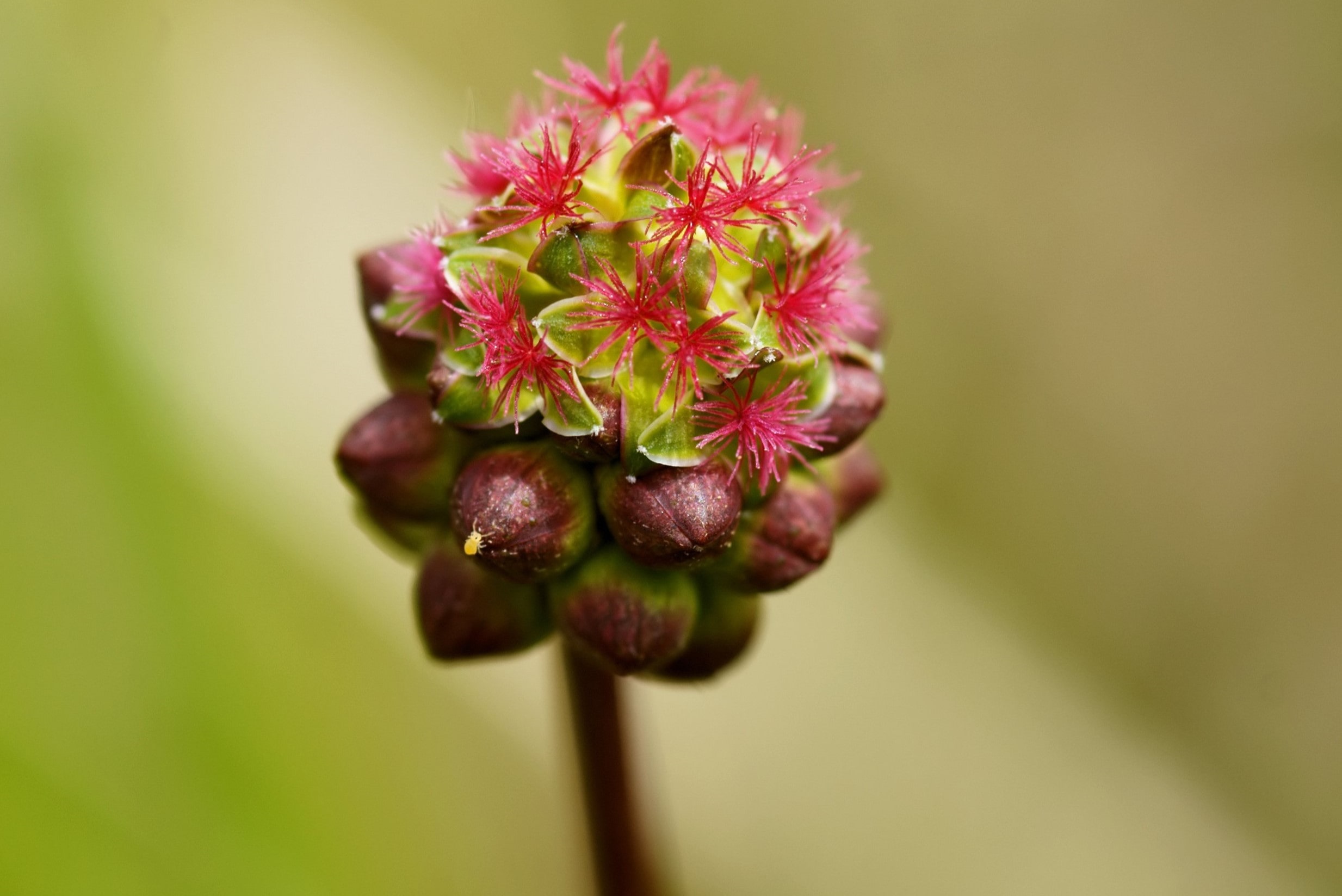
Ever heard of Salad Burnet? This humble herb packs a punch in both flavor and health benefits. Salad Burnet is a perennial plant often used in salads, soups, and sauces. Its leaves have a cucumber-like taste, making it a refreshing addition to many dishes. But there's more to this plant than just its taste. Salad Burnet is rich in vitamins and antioxidants, which can boost your immune system and improve skin health. It's also easy to grow, thriving in various soil types and climates. Whether you're a seasoned gardener or a culinary enthusiast, Salad Burnet is a versatile herb worth adding to your repertoire. Ready to learn more? Let's dive into 15 fascinating facts about this remarkable plant!
Key Takeaways:
- Salad Burnet, also known as Sanguisorba minor, is a versatile herb with a mild, cucumber-like flavor. It can be used in salads, soups, and sauces, and has medicinal properties for digestion and wound healing.
- If you're interested in growing Salad Burnet, it's easy to cultivate in well-drained soil with regular watering. Once established, it can live for several years and attract pollinators with its small flowers.
What is Salad Burnet?
Salad Burnet, scientifically known as Sanguisorba minor, is a perennial herb that belongs to the rose family. This plant is not only known for its culinary uses but also for its medicinal properties. Here are some fascinating facts about Salad Burnet.
-
Origin: Salad Burnet is native to Europe, particularly the Mediterranean region. It has been used for centuries in various cultures for its unique flavor and health benefits.
-
Appearance: This herb has small, rounded leaves that resemble those of a rose bush. The leaves are bright green and have a slightly serrated edge.
-
Flavor: The leaves of Salad Burnet have a mild, cucumber-like flavor, making them a popular addition to salads and other dishes.
Culinary Uses of Salad Burnet
Salad Burnet is a versatile herb that can be used in a variety of culinary applications. Its fresh, crisp taste adds a unique touch to many dishes.
-
Salads: As the name suggests, Salad Burnet is often used in salads. Its fresh, cucumber-like flavor pairs well with other greens.
-
Soups and Sauces: The leaves can be added to soups and sauces to enhance their flavor. They are particularly good in cream-based soups.
-
Herb Butter: Salad Burnet can be mixed with butter to create a flavorful herb butter, perfect for spreading on bread or melting over vegetables.
Medicinal Properties of Salad Burnet
Beyond its culinary uses, Salad Burnet has been valued for its medicinal properties. It has been used in traditional medicine for various ailments.
-
Digestive Aid: Salad Burnet is known to aid digestion. It can help alleviate stomach cramps and other digestive issues.
-
Anti-inflammatory: The herb has anti-inflammatory properties, making it useful for treating conditions like arthritis and other inflammatory diseases.
-
Wound Healing: Historically, Salad Burnet was used to treat wounds and stop bleeding. Its astringent properties help in the healing process.
Growing Salad Burnet
If you're interested in growing your own Salad Burnet, you'll be pleased to know that it's relatively easy to cultivate.
-
Soil Requirements: Salad Burnet prefers well-drained soil and can thrive in both full sun and partial shade.
-
Watering: This herb is drought-tolerant but will benefit from regular watering, especially during dry periods.
-
Propagation: Salad Burnet can be propagated from seeds or by dividing established plants. Seeds should be sown in the spring or fall.
Interesting Facts About Salad Burnet
Here are some additional interesting facts about this versatile herb that you might not know.
-
Historical Use: Salad Burnet was a favorite of Queen Elizabeth I, who enjoyed its fresh flavor in her salads.
-
Pollinator Friendly: The small, inconspicuous flowers of Salad Burnet attract bees and other pollinators, making it a great addition to a pollinator-friendly garden.
-
Longevity: Once established, Salad Burnet can live for several years, providing a continuous supply of fresh leaves for your culinary and medicinal needs.
Salad Burnet: A Hidden Gem in Your Garden
Salad burnet isn't just another plant. It's a versatile herb with a rich history and numerous benefits. From its medicinal properties to its culinary uses, this herb deserves a spot in your garden. Its refreshing cucumber-like flavor can elevate salads, soups, and even beverages. Plus, it's easy to grow and maintain, making it perfect for both novice and experienced gardeners.
Beyond the kitchen, salad burnet has been used for centuries to treat wounds, reduce inflammation, and aid digestion. Its antioxidant properties also make it a valuable addition to a healthy lifestyle. Whether you're looking to expand your herb garden or explore new flavors, salad burnet offers a unique blend of taste and health benefits. Give it a try and see how this underappreciated herb can make a difference in your garden and kitchen.
Frequently Asked Questions
Was this page helpful?
Our commitment to delivering trustworthy and engaging content is at the heart of what we do. Each fact on our site is contributed by real users like you, bringing a wealth of diverse insights and information. To ensure the highest standards of accuracy and reliability, our dedicated editors meticulously review each submission. This process guarantees that the facts we share are not only fascinating but also credible. Trust in our commitment to quality and authenticity as you explore and learn with us.


